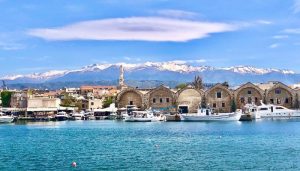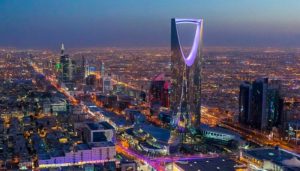
The 29th Conference of the Parties (COP29) is happening in Baku, Azerbaijan, from November 18 to 29, 2024. This global event brings together world leaders, scientists, and activists. They are here to discuss how to fight climate change. Tourism leaders are also taking part in these talks. They want to find solutions for their industry. Climate change is already affecting tourism in many ways.
Why COP29 Matters to Tourism
Tourism relies on nature, culture, and local communities. However, rising temperatures, extreme weather, and environmental damage threaten these resources. Beach destinations face rising sea levels. Ski resorts suffer from melting snow. Heatwaves make some tourist spots less attractive.
At COP29, discussions are focusing on these challenges. Tourism leaders want to understand how they can adapt. They also want to reduce their industry’s environmental impact.
Key Climate Issues for Tourism
- Rising Temperatures and Weather Extremes
Many popular destinations are becoming too hot. Heatwaves in Europe have caused health concerns for tourists. This has reduced travel during the summer months. Hurricanes and floods are also more frequent. These events destroy infrastructure and harm local communities. Tourism businesses must prepare for such risks. They also need to ensure the safety of travelers. At COP29, experts are sharing new ideas to handle these challenges. - Carbon Emissions from Travel
Tourism is responsible for about 8% of global carbon emissions. Flights and car travel produce the most emissions. Hotels and resorts also contribute by using energy for air conditioning, heating, and lighting. At COP29, there is a strong push to reduce these emissions. Governments are discussing taxes on high-emission activities. Tourism leaders are exploring greener options. This includes promoting train travel, using renewable energy, and adopting sustainable practices. - Impact on Natural Attractions
Climate change is damaging many natural attractions. Coral reefs are dying because of rising ocean temperatures. Famous landmarks, like glaciers in the Alps, are melting. Wildfires are destroying forests and parks. These changes affect tourist destinations and local economies. Protecting these attractions is a key topic at COP29. Solutions include better conservation efforts and limiting the number of visitors in fragile areas. - Pressure on Local Communities
Tourism can help local economies. However, it can also put pressure on resources like water, food, and energy. In some regions, local residents struggle to meet their own needs because tourists consume too much. COP29 is highlighting the need for fair resource management. Sustainable tourism practices can ensure that both locals and tourists benefit. - Adapting to New Travel Trends
Climate-conscious travelers are growing in number. They want eco-friendly hotels and activities. Many prefer destinations that care for the environment. At COP29, tourism leaders are discussing how to meet these demands. They are looking at ways to create greener travel packages. Some companies are also pledging to reduce their carbon footprint.
What Tourism Leaders Can Do
Tourism leaders attending COP29 are focusing on actions they can take. Some key steps include:
- Investing in Sustainable Infrastructure: Using renewable energy, water-saving technologies, and eco-friendly building materials.
- Reducing Carbon Footprints: Promoting alternative transport options like trains and electric vehicles.
- Collaborating with Communities: Involving local people in tourism planning. This ensures fair use of resources and benefits.
- Educating Tourists: Encouraging visitors to adopt eco-friendly behaviors. This includes reducing waste, respecting local culture, and supporting sustainable businesses.
The Role of Governments
Governments also play an important role. Policies and regulations can push the tourism industry to be more sustainable. For example, some countries are setting limits on how many tourists can visit sensitive areas. Others are offering financial incentives for green investments.
At COP29, government leaders are working on international agreements. These agreements aim to help all industries, including tourism, become more climate-friendly.
Final Thoughts
COP29 in Baku is a critical moment for the tourism industry. It highlights the urgent need to address climate challenges. Tourism depends on healthy ecosystems and stable climates. Without action, many destinations may no longer exist.
Tourism leaders must use this opportunity to make changes. By adopting sustainable practices, they can protect their businesses and the planet. COP29 is not just about discussing problems; it is about finding solutions. Everyone has a role to play in building a greener future for tourism.



